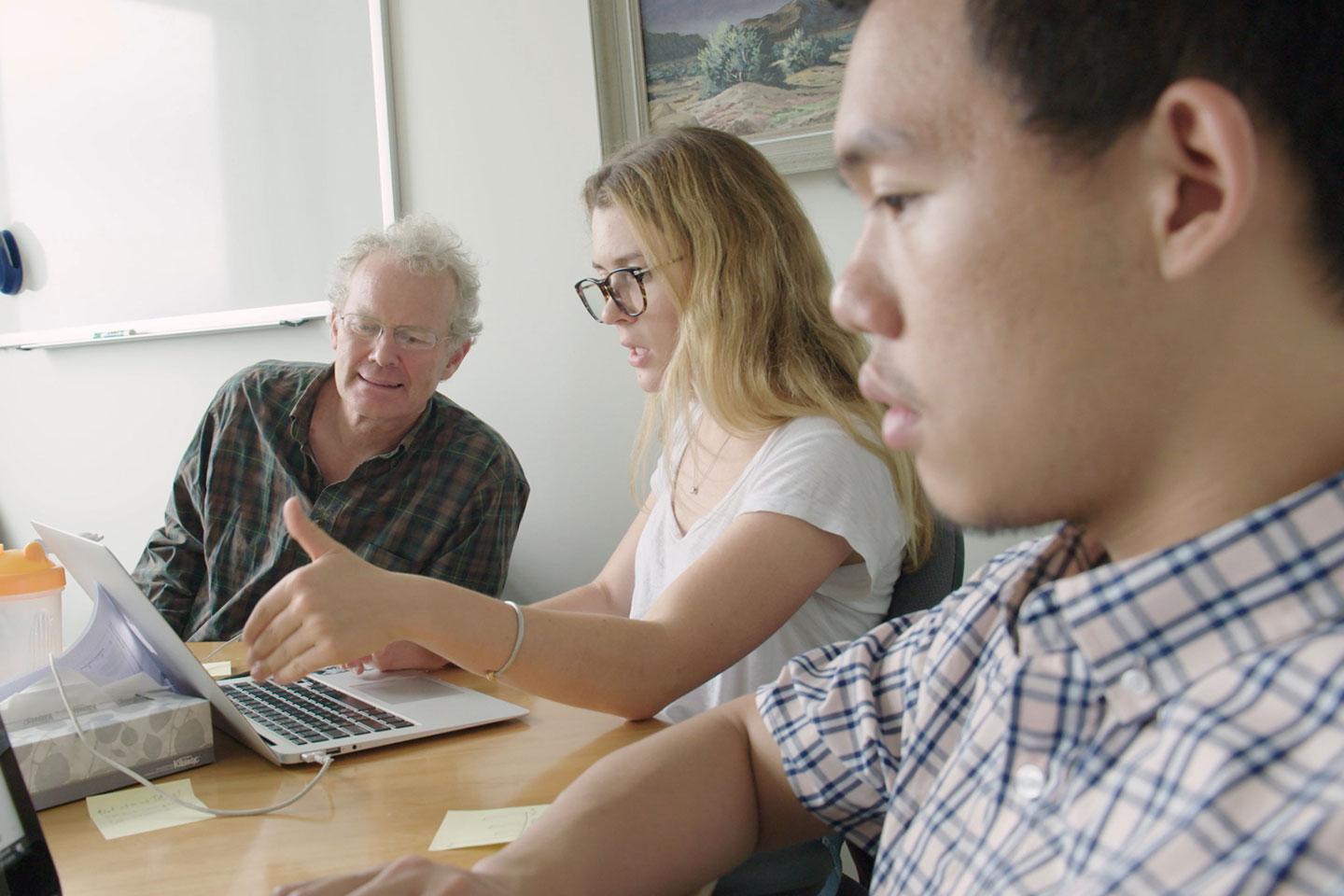
Koop Scholars in Prevention Science
Support student research aimed at the marketing of e-cigarettes, alcohol, and processed foods
Dartmouth's Koop Institute examines how everyday influences—in movies, TV, advertising—can lead to poor health decisions

Do teens who use e-cigarettes eventually take up cigarette smoking? How do fast-food commercials contribute to overeating in young children? Does alcohol advertising influence underage drinking?
Faculty and students at Dartmouth’s C. Everett Koop Institute conduct the research needed to answer these questions.
“As citizens and consumers, people have a right to know how their interactions with products and outside influences will affect their health,” said Sarah Heatherton, a graduate of St. Lawrence University and recent Koop Scholar. The Koop Scholars Program—which is supported by philanthropic gifts—provides opportunities for recent college graduates to spend one to two years assisting with research at the Institute. “But we can’t all be experts and so we rely on institutions like the Koop Institute to figure out what those impacts are and to educate us.”
Sargent is best known for his groundbreaking research on smoking in movies marketed to youth. His research led to a U.S. Surgeon General Report and a commitment from the motion picture industry to limit depictions of smoking in PG and PG-13 movies. Many Dartmouth College students first learn of the Institute’s research through a course called “Adolescent Risk Behaviors,” taught by Sargent.
“Koop Scholars and student interns work side-by-side with our behavior and policy scientists, learn to conduct research, and often co-author publications on important findings. They also provide us with the critical perspective of young intellects,” said Sargent. “Whatever careers these students’ ultimately pursue, we hope to challenge the way they think about the world and thereby influence its future.”
“I learned a lot more about how corporations can have an effect on people’s lives on a daily basis,” said Aminata Traore, who was the first Koop Scholar and is now a medical student at the University of Pennsylvania. “I also saw how you can take research from a very confined space and apply it to a broader scale.”
Traore’s research at the Koop Institute resulted in a scientific paper, published in Pediatrics, showing that TV ratings didn’t correlate well with the amount of violence in those shows.
“You hear about how children model behavior on what they see on a regular basis and you think about all the cartoons kids are seeing and how much violence they see. It’s a different type of violence compared to a Mature Audience–rated shows, not blood and gore, but it is still a lot of exposure,” she explained.
On a more personal note, Traore said, “Being a Koop Scholar taught me how to be more critical—to look at the science in research articles and be able to tell good science from bad. This is something every physician should be able to do.”
We’re committed to inspiring critical thinkers and future policy makers